Recent Blog Posts
When Can You Expunge a DWI Arrest from Your Record?
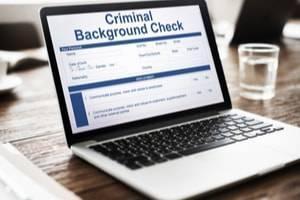 An arrest and conviction for driving while intoxicated will stay on your criminal record long after any court ruling or punishment. You may not realize the effect that a DWI record can have until it shows up during a background check when you are applying for a job. This may be particularly frustrating if you were never convicted of DWI. A DWI arrest and charge remain on your record unless you take steps to expunge them. However, your case must meet specific conditions in order to be eligible for expunction in Texas.
An arrest and conviction for driving while intoxicated will stay on your criminal record long after any court ruling or punishment. You may not realize the effect that a DWI record can have until it shows up during a background check when you are applying for a job. This may be particularly frustrating if you were never convicted of DWI. A DWI arrest and charge remain on your record unless you take steps to expunge them. However, your case must meet specific conditions in order to be eligible for expunction in Texas.
What Is Expunction?
Criminal charges and convictions are normally visible to anyone who conducts a criminal background check on you. With DWI convictions in Texas, you can petition to have your conviction sealed from everyone except for law enforcement and employers in sensitive fields, such as education. Texas allows record sealing for some first-time DWI offenders whose conviction did not include aggravating charges. Expunction removes the charge and conviction from your record so that it does not appear in any searches of official public records (Your arrest may still appear in an internet search if a story about your arrest was published and is archived on a private media company’s website).
Immigrants At Risk If Convicted for DWI
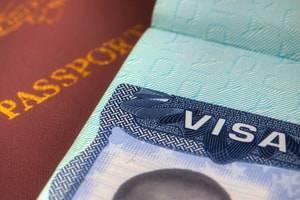 A U.S. representative from central Texas recently claimed that half of the people arrested for driving while intoxicated on Interstate 35 are illegal immigrants. At a forum on the Mexican border crisis, the congressman said that local law enforcement had told him this, as well as that most illegal immigrants had no identification but police officers had to let them go with just a ticket because the jails are full. Fact-checkers debunked this claim on multiple levels:
A U.S. representative from central Texas recently claimed that half of the people arrested for driving while intoxicated on Interstate 35 are illegal immigrants. At a forum on the Mexican border crisis, the congressman said that local law enforcement had told him this, as well as that most illegal immigrants had no identification but police officers had to let them go with just a ticket because the jails are full. Fact-checkers debunked this claim on multiple levels:
- None of the law enforcement agencies they talked to had official statistics on the number of DWI arrests that involved illegal immigrants; and
- Jails have contingency plans in the event that they have reached capacity.
What is true is that immigrants, here legally or otherwise, can face serious consequences if they are convicted of DWI.
Will I Be Deported?
If you are an immigrant to the U.S. who has been charged with DWI, your biggest fear may be whether a conviction would result in deportation. The answer depends on your legal status in the U.S.:
Four Errors That Occur in Breath Alcohol Tests
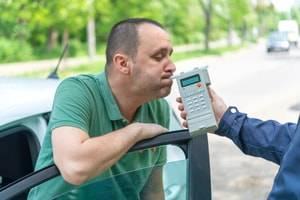 Of the methods for testing someone’s blood alcohol concentration, blood tests are considered the most accurate. However, a breath test is more useful to police officers who are trying to establish probable cause to arrest someone for driving while intoxicated. It is more difficult to get a suspect to give a blood sample, and the results are not available until the blood has been taken to a lab for testing. By contrast, a breath test may be as simple as the subject breathing into a portable device, and officers can obtain immediate results in the field. Drivers who are stopped on suspicion of DWI should be cautious about agreeing to a breath test, even if they have had little or nothing to drink. There are several reasons that a breath test may give an inaccurate reading, leading to your arrest:
Of the methods for testing someone’s blood alcohol concentration, blood tests are considered the most accurate. However, a breath test is more useful to police officers who are trying to establish probable cause to arrest someone for driving while intoxicated. It is more difficult to get a suspect to give a blood sample, and the results are not available until the blood has been taken to a lab for testing. By contrast, a breath test may be as simple as the subject breathing into a portable device, and officers can obtain immediate results in the field. Drivers who are stopped on suspicion of DWI should be cautious about agreeing to a breath test, even if they have had little or nothing to drink. There are several reasons that a breath test may give an inaccurate reading, leading to your arrest:
- Equipment Errors: The breath test device, commonly called a breathalyzer, must be periodically calibrated to ensure that its readings are accurate. When a breathalyzer is used frequently, its sensors can become saturated, causing readings to be inaccurately high. Law enforcement cannot know whether the equipment has been affected in this way unless they check the device on a regular schedule.
Have Ride-Sharing Services Decreased Texas DWI Arrests?
 Ride-sharing services such as Lyft and Uber often hail themselves for decreasing the number of crashes and arrests involving people who drive while intoxicated. Arranging for transportation through your phone makes it easier for you to get a ride home when you are too drunk to drive. Various studies have shown that metropolitan areas had decreases in DWI arrests after the ride-sharing services entered their market, but the effect is inconsistent across the different cities. Some researchers believe that the effect of ride-sharing services on DWI arrests and crashes may be overstated.
Ride-sharing services such as Lyft and Uber often hail themselves for decreasing the number of crashes and arrests involving people who drive while intoxicated. Arranging for transportation through your phone makes it easier for you to get a ride home when you are too drunk to drive. Various studies have shown that metropolitan areas had decreases in DWI arrests after the ride-sharing services entered their market, but the effect is inconsistent across the different cities. Some researchers believe that the effect of ride-sharing services on DWI arrests and crashes may be overstated.
Other Factors
Researchers had a good opportunity to study the relationship between DWI arrests and ride-sharing services when Lyft and Uber temporarily left some major cities a few years ago, including Austin and San Antonio. Cities such as San Antonio did have a noticeable decrease in alcohol-related crashes when the services returned, but other cities saw little or no change. For instance, the number of DWI arrests continued to decrease in Austin after Lyft and Uber ceased operating there. Thus, researchers state that other factors may be responsible when DWI arrests decrease, such as:
Hunches Are Not Reasonable Suspicion in DWI Stops
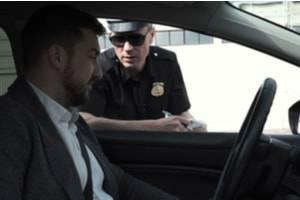 All arrests for driving while intoxicated must start with the police officer establishing reasonable suspicion to stop a vehicle. Accepted reasons to stop a driver include traffic violations or erratic driving behavior. However, officers will sometimes stop drivers on nothing more than a hunch that they are committing a DWI offense. Traffic stops based on hunches are illegal, even if the hunch ends up being correct. Any evidence that came after that illegal stop would be suppressed in court, effectively ending the prosecution’s case. There are several ways that an officer may use a hunch instead of reasonable suspicion to initiate a DWI stop:
All arrests for driving while intoxicated must start with the police officer establishing reasonable suspicion to stop a vehicle. Accepted reasons to stop a driver include traffic violations or erratic driving behavior. However, officers will sometimes stop drivers on nothing more than a hunch that they are committing a DWI offense. Traffic stops based on hunches are illegal, even if the hunch ends up being correct. Any evidence that came after that illegal stop would be suppressed in court, effectively ending the prosecution’s case. There are several ways that an officer may use a hunch instead of reasonable suspicion to initiate a DWI stop:
- Targeting Bar and Restaurant Patrons: Many drunk drivers became intoxicated because they were at a public establishment that serves alcohol. Police officers know that there is a greater risk of DWI incidents near bars and restaurants, but they cannot stop a driver simply because they were leaving such an establishment. The driver must show signs of impairment that create reasonable suspicion that they may be intoxicated. Stopping the driver prematurely would be targeting a driver based on a presumption of guilt.
When Police, Hospitals Disagree on Search Consent
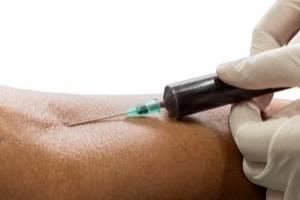 Texas has an implied consent law that states that a licensed driver has consented to chemical testing if a police officer has probable cause to believe that they have been driving while intoxicated. The law applies even when the suspect is unconscious and unable to give consent. When a DWI suspect is injured in an incident, the officer will often collect a blood sample from the suspect at the hospital, where there is a trained staff available to draw the sample. However, some hospitals have a policy against drawing blood from a patient who is unable to consent. This can lead to disputes between police officers trying to obtain evidence and hospital staff concerned about the patient’s privacy.
Texas has an implied consent law that states that a licensed driver has consented to chemical testing if a police officer has probable cause to believe that they have been driving while intoxicated. The law applies even when the suspect is unconscious and unable to give consent. When a DWI suspect is injured in an incident, the officer will often collect a blood sample from the suspect at the hospital, where there is a trained staff available to draw the sample. However, some hospitals have a policy against drawing blood from a patient who is unable to consent. This can lead to disputes between police officers trying to obtain evidence and hospital staff concerned about the patient’s privacy.
Recent Example
A nurse at a Dallas area hospital recently refused to allow police to draw blood from a DWI suspect until they presented a warrant. The male suspect had been involved in a car accident that killed two women. The man had been convicted for DWI five times previously, gotten off of probation five days earlier, and just had the ignition interlock device removed from his vehicle. A breath test showed no traces of alcohol, but the officer believed that he was intoxicated because they claim that he:
When to Consider a Plea Bargain for Your DWI Case
 The preferred strategy when you have been charged with driving while intoxicated is to try to receive a “not guilty” verdict or to get the charge dismissed. In some cases, your best strategy is to minimize the penalties you receive. When a conviction seems unavoidable, your DWI defense attorney can negotiate a plea bargain with prosecutors, in which you agree to plead guilty in exchange for a lesser charge or lesser penalty. Plea bargaining should be a last resort after evaluating your case and determining how you can contest the charge. A plea bargain can still result in severe consequences.
The preferred strategy when you have been charged with driving while intoxicated is to try to receive a “not guilty” verdict or to get the charge dismissed. In some cases, your best strategy is to minimize the penalties you receive. When a conviction seems unavoidable, your DWI defense attorney can negotiate a plea bargain with prosecutors, in which you agree to plead guilty in exchange for a lesser charge or lesser penalty. Plea bargaining should be a last resort after evaluating your case and determining how you can contest the charge. A plea bargain can still result in severe consequences.
The Reality of Plea Bargains
Your best-case scenario in plea bargaining with prosecutors would be to get your DWI charge reduced to reckless driving, obstruction of a highway or public intoxication. These charges could allow you to avoid jail time and a driver’s license suspension. However, prosecutors are more likely to offer lesser penalties in exchange for pleading guilty to DWI. When deciding whether to offer a plea bargain, prosecutors will consider:
Texas Axing Driver Responsibility Program, Raising DWI Fines
 Texas is ending its controversial Driver Responsibility Program that requires an annual surcharge for people convicted for driving violations, including driving while intoxicated. Statistics suggest that more than 1 million Texas drivers will be eligible to regain their driver’s licenses – some immediately and some when the program officially ends on Sept. 1. Civil liberties advocates have criticized the program for disproportionately affecting low-income traffic offenders. However, the news is not completely positive for people facing DWI charges. In exchange for eliminating the Driver Responsibility Program, Texas is increasing its fines for people convicted of DWI.
Texas is ending its controversial Driver Responsibility Program that requires an annual surcharge for people convicted for driving violations, including driving while intoxicated. Statistics suggest that more than 1 million Texas drivers will be eligible to regain their driver’s licenses – some immediately and some when the program officially ends on Sept. 1. Civil liberties advocates have criticized the program for disproportionately affecting low-income traffic offenders. However, the news is not completely positive for people facing DWI charges. In exchange for eliminating the Driver Responsibility Program, Texas is increasing its fines for people convicted of DWI.
Driver Responsibility Program
Texas enacted the Driver Responsibility Program in 2003 to charge an additional fee beyond the fine charged upon conviction for a traffic violation. Drivers whose licenses were suspended must pay an annual surcharge to the Texas Department of Public Safety for three years in order to regain their licenses. For DWI convictions, the annual surcharge was:
Beware of Increased DWI Arrests on Independence Day
 The Fourth of July and the accompanying weekend may be the height of summer celebration in the U.S. It is also a time of year that will see an increased number of vehicle crashes and fatalities related to driving while intoxicated. Police will try to prevent the damage by having additional officers on patrol for drivers who may be under the influence of alcohol or drugs. You do not want to ruin your holiday by becoming one of the many people who will be arrested for DWI. Here are three tips for preventing a DWI arrest that may be relevant to your Independence Day:
The Fourth of July and the accompanying weekend may be the height of summer celebration in the U.S. It is also a time of year that will see an increased number of vehicle crashes and fatalities related to driving while intoxicated. Police will try to prevent the damage by having additional officers on patrol for drivers who may be under the influence of alcohol or drugs. You do not want to ruin your holiday by becoming one of the many people who will be arrested for DWI. Here are three tips for preventing a DWI arrest that may be relevant to your Independence Day:
- Have a Transportation Plan: The best way to avoid a DWI charge is to not drink and drive. Even if you think you are safe to drive, police officers will be attentive to any signs that you may be impaired. Whether at a public event or private party, plan ahead for how you will get home if you expect to drink. Have a designated driver or use a ride-share service. Waiting for a ride to show up is better than waiting in the back of a police car or ambulance. If at a private residence, ask your host if you can stay until you sober up or plan on ending your drinking earlier in the night.
Failure to Administer Oath Suppresses Evidence from Search Warrant
 You have the right to deny a police search until an officer presents you with a search warrant. To obtain a warrant, the officer files an affidavit with a judge, who will approve a warrant if he or she agrees that there is probable cause to conduct a search. Police often use warrants to search residences or vehicles, but a warrant is also required to obtain a blood sample if police suspect you of driving while intoxicated. Police are essentially asking to search your body for evidence of intoxication, which prosecutors can use in a trial. Officers in the field often send their affidavits electronically to a judge in order to expedite the process. In two recent cases, DWI defendants successfully argued that the evidence obtained from their search warrants was inadmissible because the officer who signed the affidavit had not been put under oath.
You have the right to deny a police search until an officer presents you with a search warrant. To obtain a warrant, the officer files an affidavit with a judge, who will approve a warrant if he or she agrees that there is probable cause to conduct a search. Police often use warrants to search residences or vehicles, but a warrant is also required to obtain a blood sample if police suspect you of driving while intoxicated. Police are essentially asking to search your body for evidence of intoxication, which prosecutors can use in a trial. Officers in the field often send their affidavits electronically to a judge in order to expedite the process. In two recent cases, DWI defendants successfully argued that the evidence obtained from their search warrants was inadmissible because the officer who signed the affidavit had not been put under oath.
Purpose of the Oath
The fourth amendment to the U.S. Constitution states that a court shall not issue a warrant without “probable cause, supported by Oath or affirmation.” When creating an affidavit, the police officer must swear under oath that the information in the affidavit is truthful, to the best of his or her knowledge. If the officer appeared before a judge to request a warrant, he or she would be sworn in before giving testimony. Two police officers are needed when sending an affidavit electronically:





